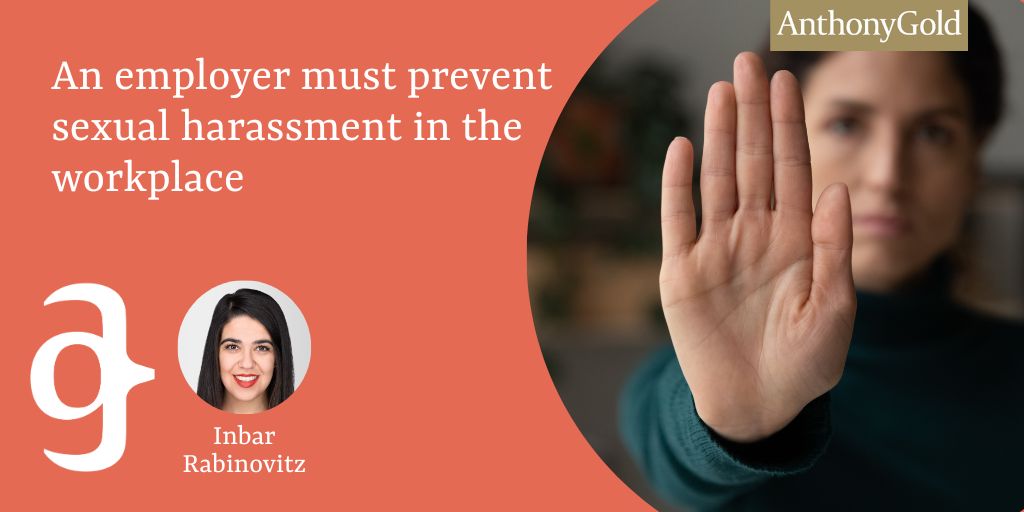An employer must prevent sexual harassment in the workplace

Under the Equality Act 2010, employees are protected from being harassed in the workplace related to any of the protected characteristics.
Under the same Act, employer can utilise the defence from liability in the event that they have taken ‘reasonable steps’ to prevent such harassment from taking place in the workplace.
What is sexual harassment?
There is a clear difference between sexual harassment and harassment because of sex (i.e. gender). While both are prohibited under the Equality Act, this blog will only deal with sexual harassment.
An example of harassment because of sex will include a manager telling a female employee that she would be responsible for taking notes in all meeting because “women must know their place” but this will not amount to sexual harassment.
Sexual harassment in the workplace could include comments made by a male manager about a female colleague’s appearance that are sexual in nature, unwanted sexual advances and inappropriate physical contract.
How could employers prevent sexual harassment at work?
A non-exhaustive list of examples includes:
- A clear policy – this will make it clear to all employees and managers where the business stands with regards to sexual harassment and it not being tolerated in the workplace;
- Open door – an open door where employees can approach a manger or HR if they are facing sexual harassment in the workplace and support is available to them
- Training – this may be awkward but it is often effective to provide training on what constitutes sexual harassment in the workplace and how to handle it as a tool for preventing this from happening
- Dealing with employee complaints effectively – carrying out thorough investigations into allegations of sexual harassment and taking prompt and effective action to deter others from committing acts of sexual harassment will be an after the event handling (and should already be the norm) but will also help deter as employees will learn that those matters are handled thoroughly.
New obligation – PREVENTION
As of 26 October 2024, new legislation will come into effect in the form of The Worker Protection (Amendment of Equality Act 2010) Act 2023 and the new Section 40A of the Equality Act 2010. This means that employers will now be required to actively prevent sexual harassment from happening in the workplace.
While the threshold for the defence has always required that an employer take ‘all reasonable steps’ as outlined in section 109(4) of the Equality Act 2010, the now higher statutory duty to prevent sexual harassment altogether would inevitably increase the requirements here too as to what constitutes reasonable steps (see below). While the previous ‘reasonable steps’ duty would still apply, an employer may still be held liable in those circumstances and an Employment Tribunal could increase the compensation payable to a Claimant by up to 25%, for failing to follow the updated guidance that will be in place from the Equality and Human Rights Commission (“EHRC”).
in 2020, EHRC published a helpful guide on steps to take to prevent sexual harassment in the workplace and that has been updated as of September 2024 following a consultation and in line with the new preventative statutory obligation. The guidance can be found here.
What can an employer do to prepare?
Besides familiarising themselves with the new guidelines as soon as they are published, employers can start taking some steps in preparation (what would be considered reasonable will depend on the size and resources of each business, of course):
- Look at existing measures and identify areas for improvement – such as considering whether an update to an existing anti-harassment policy may be appropriate or indeed an introduction of one;
- Provide training for all staff that should be mandatory attendance;
- Consider whether regular training is appropriate or required;
- Ensure that the business’ messaging on tolerance and anti-harassment is clear and consistent across the board;
- Ensure that managers are equipped to handle complaints of sexual harassment in an appropriate manner and prevent those as and if they arise.

No comments